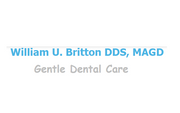How Exercises Can Reduce Teeth Grinding

Teeth grinding, also known as bruxism, often occurs while a person is asleep, so many aren't aware of it until negative side effects occur. These can ultimately lead to tooth damage, pain from headaches, and even long-term issues with the jaw. Luckily, there are ways to protect your teeth at night, such as having a custom mouthguard designed by a dentist. There are also exercises that can help. Here's a closer look at these physical strategies and how they can provide relief.
What Is the Purpose of Bruxism Exercises?
Bruxism can occur subconsciously throughout the day or during sleep, leading to worn enamel on the layers of the teeth, tooth pain, and even breakage and chips. These issues can expose the tooth and make it more susceptible to long-term decay. Additionally, the consistent clenching leads to muscles becoming tense and tight, resulting in headaches, difficulty sleeping, and pain and soreness in the jaw, neck, and mouth.
A mouthguard can protect your teeth during the night, but you can work on the problem during waking hours by performing exercises. Since part of the issue is that muscles are getting tense and tight from clenching, exercises may help in relaxing those that are most affected.

They can also be used to train your jaw and tongue to remain relaxed and in a neutral position so that the subconscious likelihood of grinding is reduced. Stress also increases the risks of teeth clenching and grinding, so training your body to stay relaxed is an important step.
What Exercises Should You Try?
Chin tucks help strengthen the jaw. They're performed by bringing the chin close to the chest and then pulling it back until the head is in a neutral position, all while keeping the teeth apart. This can be repeated 10–15 times, two or three times a day.
A simpler mindfulness practice will help keep the tongue and jaw in a neutral position. Open your jaw to a relaxed position while keeping your lips closed. Breathe deeply with your tongue on the roof of your mouth. This can be repeated throughout the day and will keep your mind aware of how you're holding your mouth.
Relaxing the tongue also helps maintain a neutral position. Move your tongue back in your mouth as far as possible and slowly open the mouth wide. Repeat this action 20 times whenever you feel the need.
Finally, cardio can be a great addition to these exercises. It relieves pent-up stress, which can help you relax and enjoy a better night's sleep.
If you need help with teeth grinding, turn to William U. Britton, DDS, MAGD, in Chillicothe, OH. This dentist has over 35 years of experience and a state-of-the-art office to help patients achieve dental health and pain relief. The practice offers custom mouthguards to protect against nocturnal bruxism. Call (740) 772-225 to make an appointment and visit the website for more information about their services.
About the Business
Have a question? Ask the experts!
Send your question

